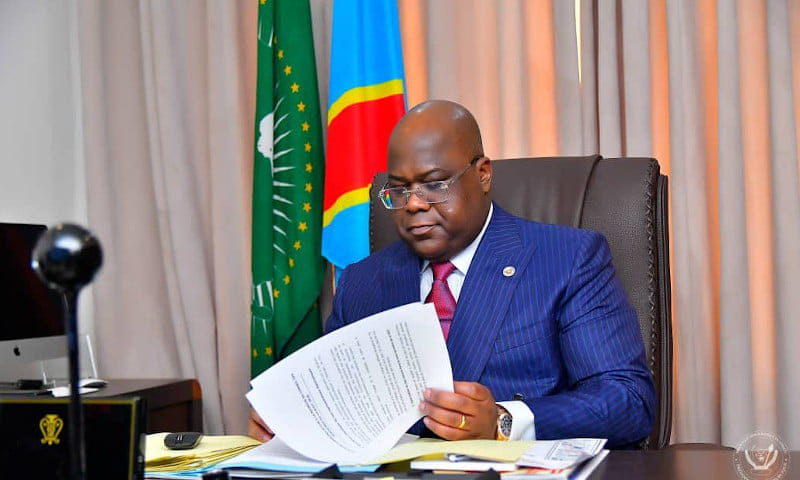By The Staff Reporter
Democratic Republic of Congo (DRC) President Félix Tshisekedi has accused Kenyan President William Ruto of mishandling the East African Community (EAC) Nairobi Peace Process, a key initiative aimed at restoring peace in the conflict-ridden eastern province of North Kivu.
In a discussion organized by the Africa Security Initiative and the Brookings African Growth Initiative, Tshisekedi claimed, “There are two processes. There was the Nairobi process driven by Uhuru Kenyatta, which unfortunately was subsequently managed by the new President William Ruto. He managed it very badly.” He further alleged that the peace process has nearly collapsed, stating, “The process is almost dead except for the fact that the designated facilitator Uhuru Kenyatta stayed. He still kept power, but the process is almost dead. President Ruto took up the cause of Rwanda. I cannot say more.”
The Nairobi Peace Process, initiated under former Kenyan President Uhuru Kenyatta, was designed to foster dialogue and bring stability to eastern DRC. However, Tshisekedi’s comments suggest that the transition of leadership to Ruto has led to a shift in priorities and a weakening of the initiative.
Critics note that Tshisekedi’s own actions have contributed to the breakdown of the process. In 2022, the DRC signed up to the EAC but Tshisekedi’s government ceased membership contributions, accumulating a debt of $13 million by July 2024. This financial strain, along with Tshisekedi’s decision to withdraw from EAC-led peace talks, has further complicated efforts to achieve peace in the region.
The accusations come amid ongoing violence and instability in North Kivu, where various armed groups continue to operate, causing significant humanitarian challenges. The diplomatic fallout highlights the complex dynamics and regional tensions impacting efforts to resolve the conflict.
Tshisekedi’s remarks show a fragile state of peace efforts in the DRC and the critical role of regional cooperation in addressing longstanding issues of security and governance.


